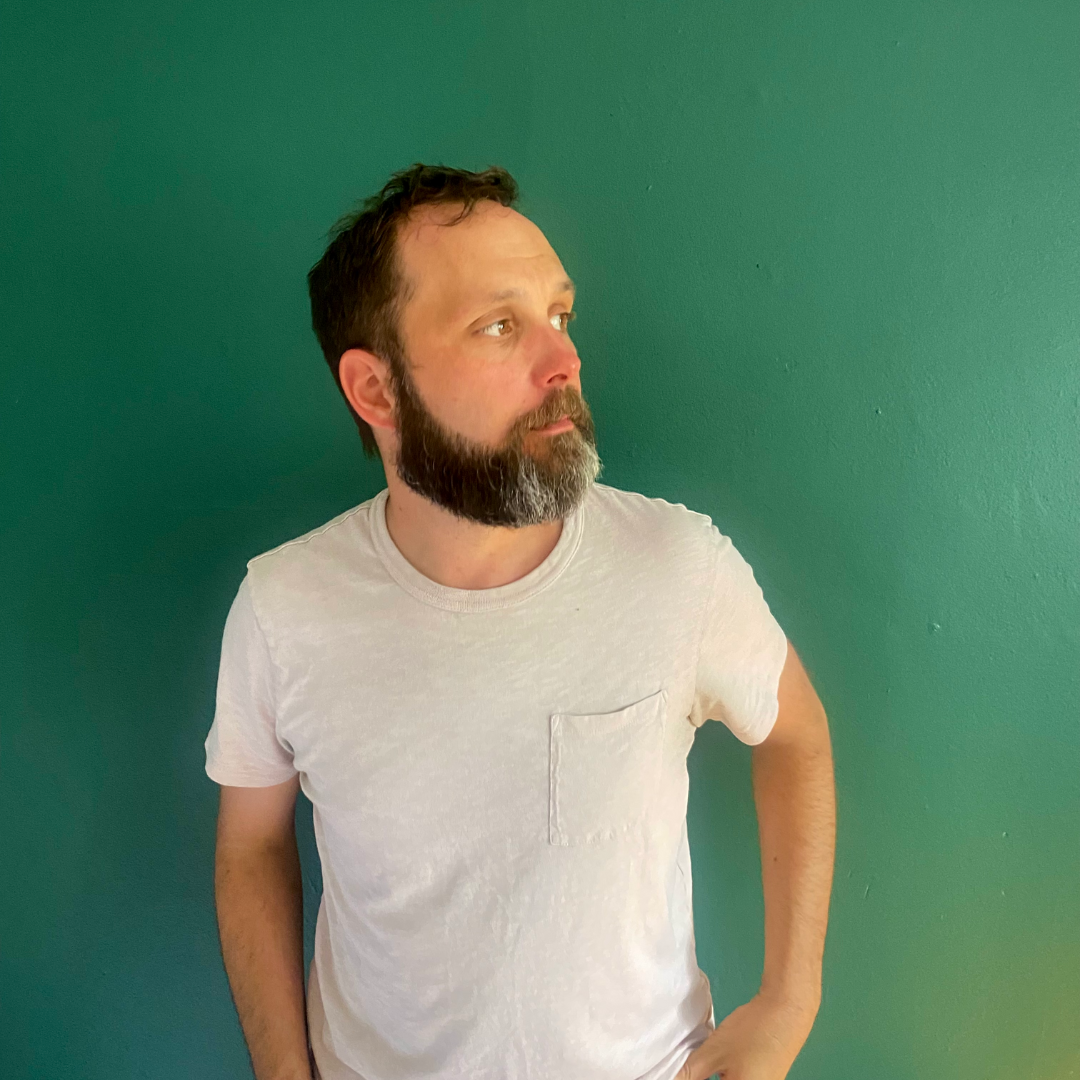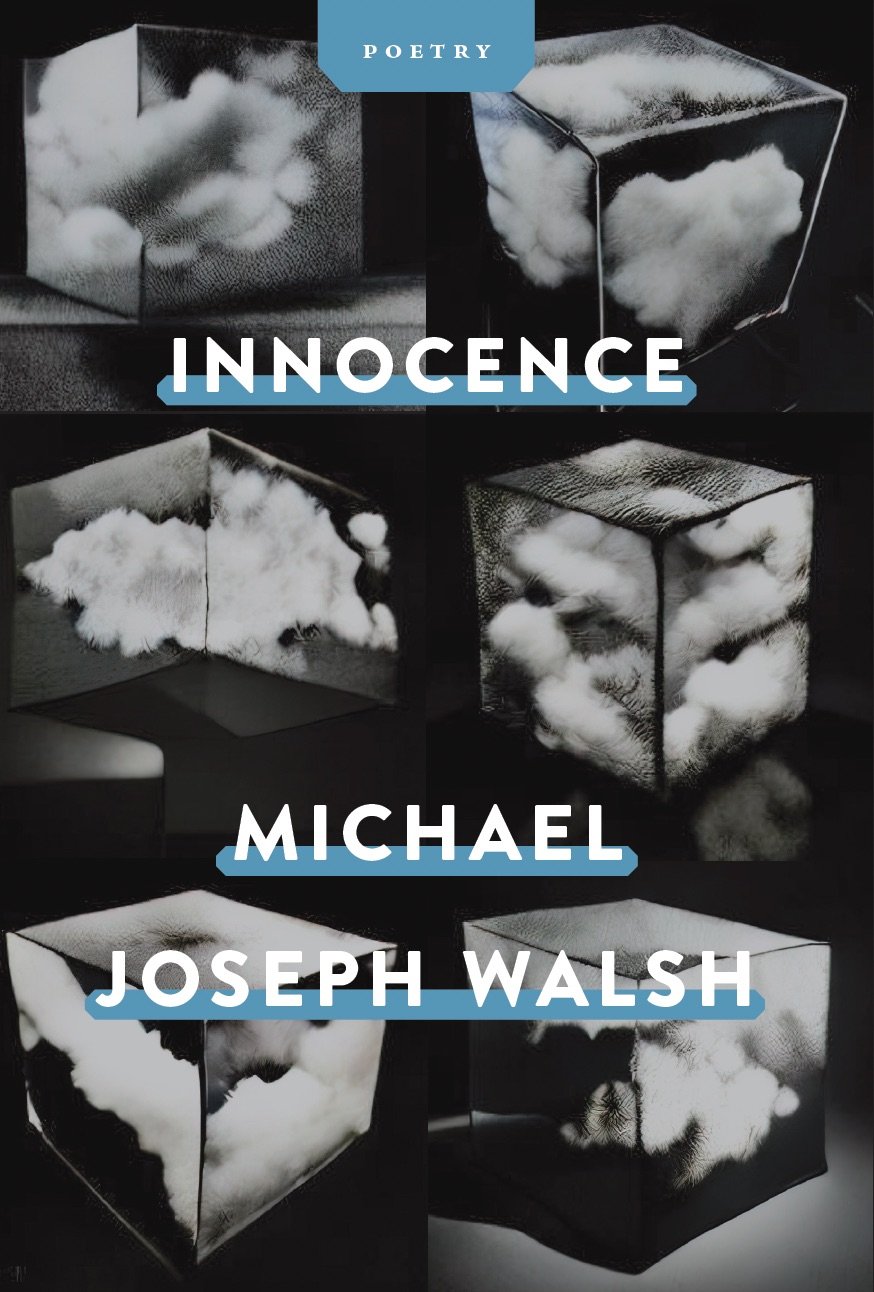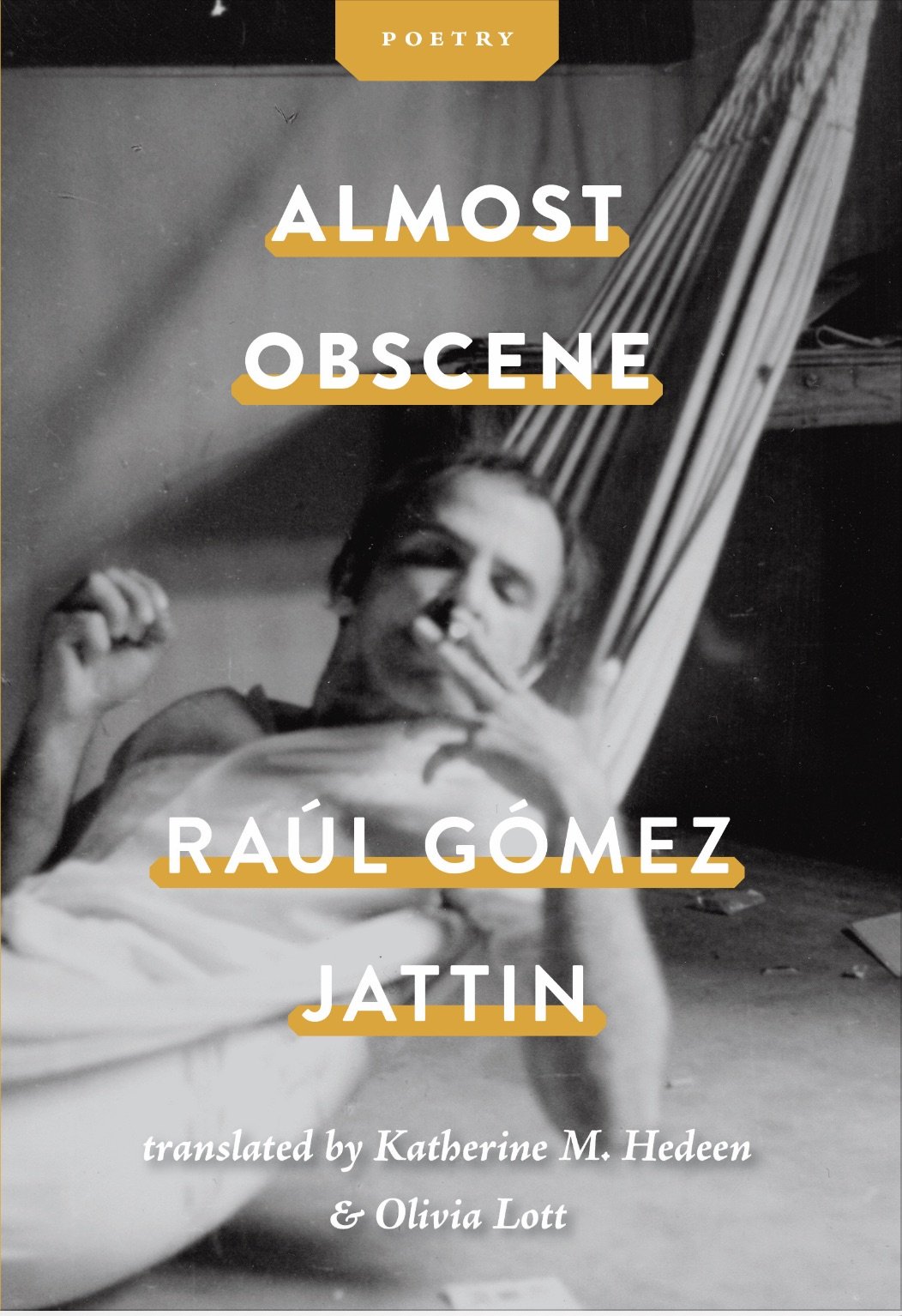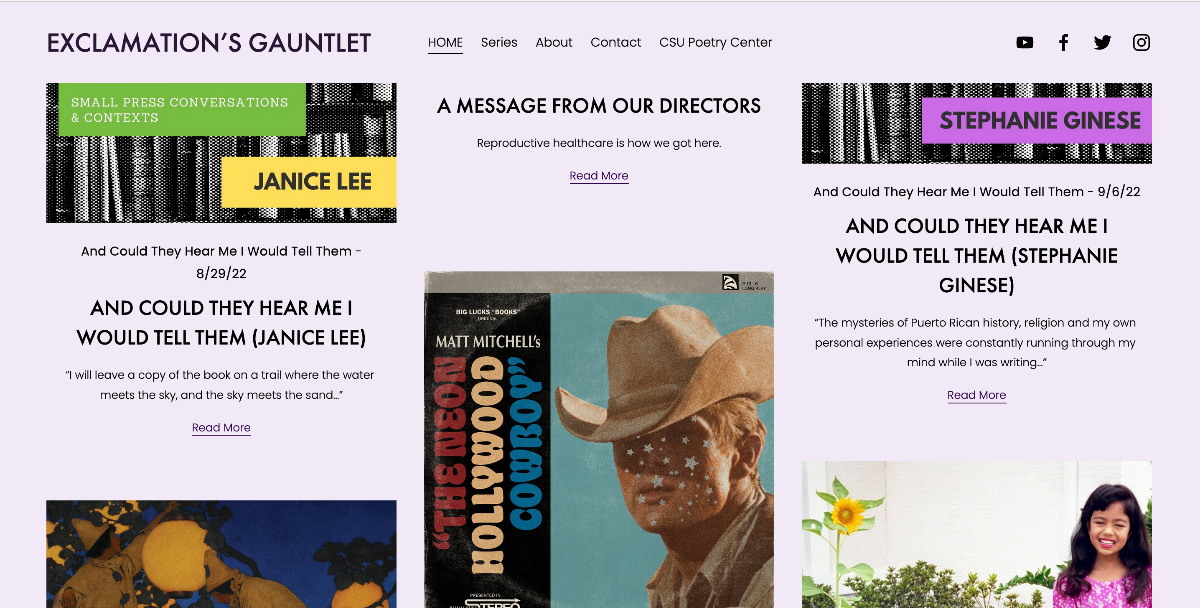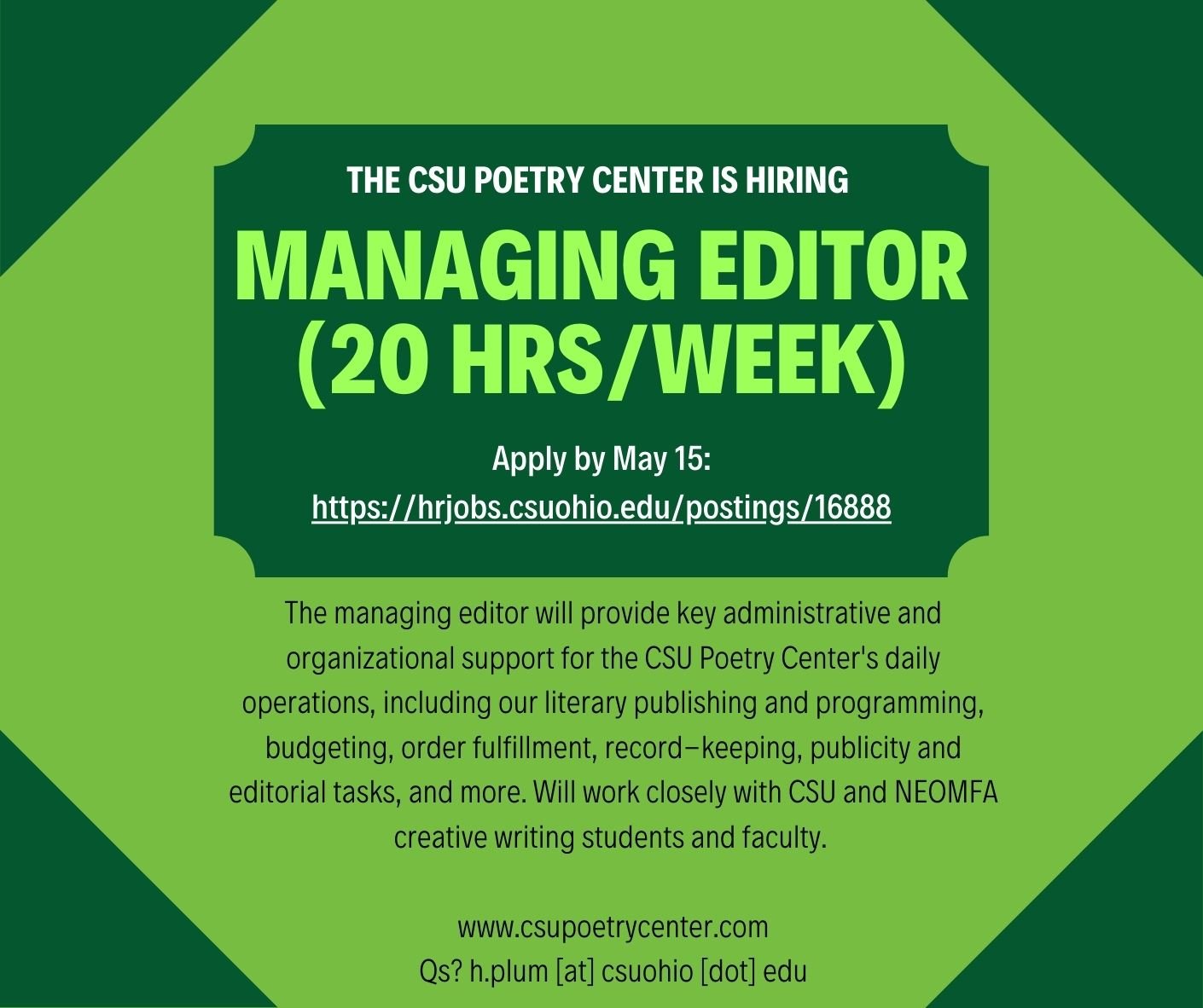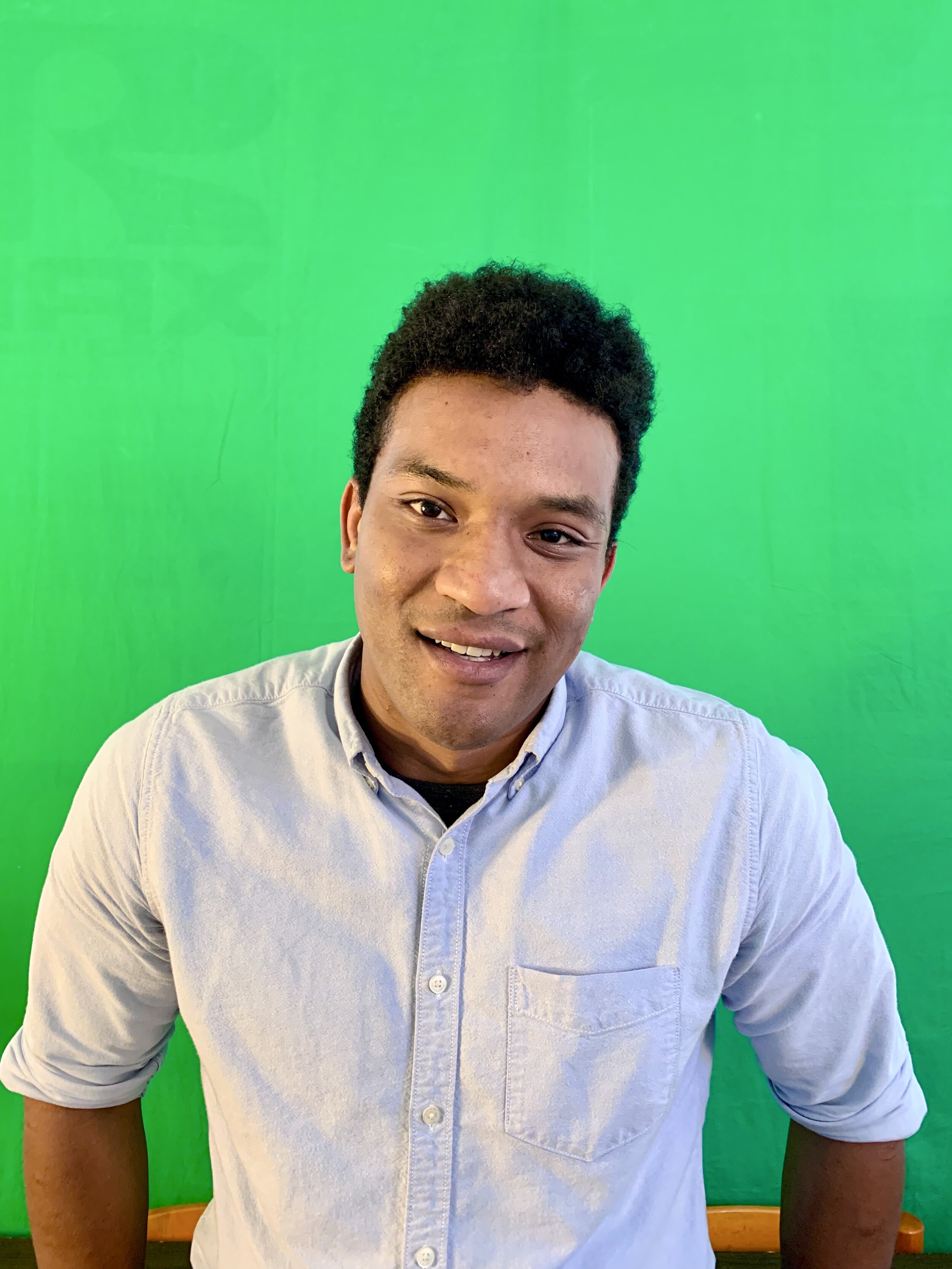Here are some favorite books our staff read in 2019 (published anytime). Happy reading!
Ali Black
One of the reasons I read is to get inspired to write. These are a few books that I read in 2019 that really inspired me to not only write, but to also think deeply about education, blackness, personal responsibility and art.
We Want To Do More Than Survive: Abolitionist Teaching and the Pursuit of Educational Freedom by Bettina L. Love
A Fortune for Your Disaster by Hanif Abdurraqib
How We Fight for Our Lives: A Memoir by Saeed Jones
Codependence by Amy Long
Art on My Mind: Visual Politics by bell hooks
Thick: And Other Essays by Tressie McMillan Cottom
On the Come Up by Angie Thomas
Dreaming of Ramadi in Detroit by Aisha Sabatini Sloan
Leyna Bohning
Poetry:
Tantrum – Stella Corso
Nonfiction:
One Day We’ll All Be Dead and None of This Will Matter – Scaachi Koul
My Private Property – Mary Ruefle
Fiction:
Find Me – Laura van den Berg
Severance – Ling Ma
Her Body and Other Parties – Carmen Maria Machado
Slade House – David Mitchell
Leila Chatti
Dorianne Laux – Only as the Day Is Long
Ilya Kaminsky – Deaf Republic
E.C. Belli – Objects of Hunger
Meg Freitag – Edith
Yanyi – Year of Blue Water
Mary Ruefle – Dunce
Ada Limón – The Carrying
Adélia Prado (trans. by Ellen Doré Watson) – Ex-Voto
Natalie Eilbert – Indictus
Alessandra Lynch – Daylily Called It a Dangerous Moment
Leslie Harrison – The Book of Endings
Ellery Akers – Knocking on the Earth
Kristin Prevallet – I, Afterlife
Jon Conley
Aug 9 – Fog – Kathryn Scanlan
The most physically beautiful item (book) I can remember holding. Short, beautiful, mysterious passages torn from a found diary that you will quickly reread over and over and over.
Machine: A Novel – Susan Steinberg
Another aesthetically beautiful book—“linked” stories with words and punctuation like a painting, telling a story that resists narrative in the way life does.
Rosemary’s Baby – Ira Levin
If I had a dollar for every time... I’d have 4 dollars. Amazingly controlled narrative that produces terror and awe through the colloquial sentence.
The Driftless Area – Tom Drury
It’s like a mystical, airy ride through the currents of small town Iowa. Distinct voices speaking in wry prose, the whole book woven with the magic of coincidence and fate.
The Iliac Crest – Christina Rivera Garza
An unknown woman shows up at the narrator’s house and all existential hell breaks loose. An amazing and confusing walk through language and self, examining how they attempt to affect and define each other, or how they refuse to, or how they don't matter and also you do not matter. This book whipped me around like a little baby feather in the wind.
Paul Noodleman (aka Tube Guy)
Actual Air by David Berman
Blood Makes Me Faint But I Go For It by Natalie Lyalin
every issue of Sky Mall
Wild is the Wind by Carl Phillips
Caryl Pagel
Some writing I read and loved this year:
Go Ahead in the Rain: Notes to a Tribe Called Quest by Hanif Abdurraqib (University of Texas Press)
Fleishman Is in Trouble by Taffy Acker-Brodesser (Random House)
Litany for the Long Moment by Mary-Kim Arnold (Essay Press)
Blackfishing the IUD by Caren Beilin (Wolfman Books)
Way of Seeing by John Berger (Penguin)
Partial Genius by Mary Biddinger (Black Lawrence Books)
Earth by Hannah Brooks-Motl (The Song Cave)
Known and Strange Things by Teju Cole (Random House)
Being Here Is Everything by Marie Darrieussecq tr. Penny Hueston (Semiotexte)
Time Is A Thing the Body Moves Through by T Fleischmann (Coffee House)
Little Labors by Rivka Galchen (New Directions)
Heavy by Kiese Laymon (Scribner)
Suite for Barbara Loden by Nathalie Léger tr. Natasha Lehrer & Cécile Menon (Dorothy)
Stet by Dora Malech (Princeton University Press)
Breakfast with Thom Gunn by Randall Mann (University of Chicago Press)
The “Happily” series by Sabrina Orah Mark (The Paris Review)
Blue Flame by Emily Pettit (Carnegie Mellon Press)
Things We Didn’t Talk About When I Was a Girl by Jeannie Vanasco (Tin House)
Looking at Pictures by Robert Walser (New Directions)
The Appendix Project by Kate Zambreno (MIT Press)
Zach Peckham
10 Books I Remember Reading This Year, In Approximate Chronological Order, And So Should You
Soft Science – Franny Choi
Clap For Me That's Not Me – Paola Capó-García
The Life of Poetry – Muriel Rukeyser
Deaf Republic – Ilya Kaminsky
Destruction Myth – Mathias Svalina
Adagio Ma Non Troppo – Ryoko Sekiguchi, translated by Lindsay Turner
Catalog of Unabashed Gratitude – Ross Gay
The Government of the Tongue – Seamus Heaney
Kings of the F**king Sea – Dan Boehl (but I read this book every year, so it maybe doesn't count)
Goat In The Snow – Emily Pettit
Hilary Plum
Read / reread especially gratefully in 2019:
Domestications: American Empire, Literary Culture, & the Postcolonial Lens by Hosam Aboul-Ela (Northwestern University Press)
Blackfishing the IUD by Caren Beilin (Wolfman)
The Walmart Book of the Dead by Lucy Biederman (Vine Leaves Press)
The Undying by Anne Boyer (FSG) & Garments Against Women by Anne Boyer (Ahsahta)
This Little Art by Kate Briggs (Fitzcarraldo)
Clap for Me That’s Not Me by Paola Capó-García (Rescue Press)
If I Were Another by Mahmoud Darwish, trans. Fady Joudah (W.W. Norton) (still always rereading)
The Dispossessed by Ursula K. LeGuin (reread, after decades, and gladly)
“A Real American” by Farid Matuk (and still thinking of Matuk’s The Real Horse)
Xamissa by Henk Rossouw (Fordham University Press)
Guantánamo Diary by Mohamedou Ould Slahi, ed. Larry Siems (Little, Brown)
Portrait with Keys: The City of Johannesburg Unlocked by Ivan Vladislavic (W.W. Norton)
Three Guineas by Virginia Woolf (reread; thanks, Caryl)


